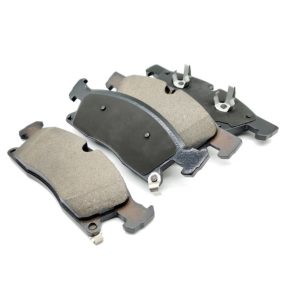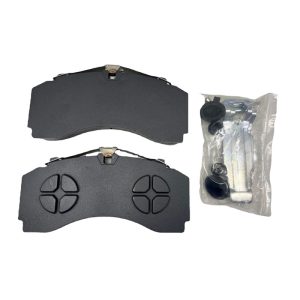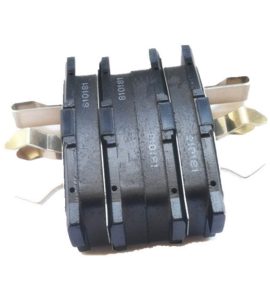


Rear brake pads are an essential component of any vehicle’s braking system. They are designed to provide friction against the rear brake rotor, helping to slow down or stop the vehicle. Rear brake pads work in conjunction with the front brake pads to provide maximum stopping power.
When replacing rear brake pads, it is important to understand the different types of brake pads available. There are three main types of rear brake pads: organic, semi-metallic and ceramic. Each type of brake pad has its own unique characteristics and benefits.
Organic brake pads are the most common type of rear brake pad. They are made from a variety of materials, including rubber, fiberglass, and Kevlar. Organic brake pads are affordable and provide good stopping power. However, they tend to wear out quickly and generate a lot of dust.
Semi-metallic brake pads are made from a mixture of metal and other materials, such as graphite and Kevlar. They are more durable than organic brake pads and offer better stopping power. However, they can be noisy and produce a lot of dust.
Ceramic brake pads are the most expensive type of rear brake pad. They are made from ceramic fibers, copper fibers, and other materials. Ceramic brake pads are very durable and provide excellent stopping power. They also produce less dust and noise than other types of brake pads. However, they are more expensive than other types of brake pads.
When replacing rear brake pads, it is important to choose the right type of brake pad for your vehicle. Consider factors such as your driving style, the type of vehicle you have, and your budget.
In addition to choosing the right type of brake pad, it is also important to properly maintain your rear brake pads. This includes regularly checking the brake pads for wear and tear, keeping the brake system clean, and replacing the brake pads as needed.
To my mind, rear brake pads are an important part of any vehicle’s braking system. Understanding the different types of brake pads available and properly maintaining them can help ensure your vehicle stops safely and effectively.

